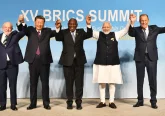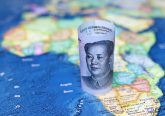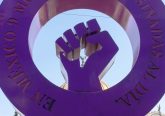In 2016, Uganda’s Presidential election was met with a surge in violence. More than 20 people reportedly died and even more were threatened and beaten in the lead-up to the election. Current Ugandan President Yoweri Museveni, who has ruled the country since 1986, captured another term in office through a strategy that relied on intimidation tactics. Voters throughout the country were told that their regions would not receive aid support if they did not vote for Museveni, leading EU and U.S. election monitors to deem that there was “an atmosphere of intimidation” that was “deeply inconsistent with international standards.”
In the lead-up to next year’s election, there are again fears of an illegitimate democratic process. Namely, increasing internet suppression may mar the outcome of the election. Museveni’s recent internet tax increases the cost of utilizing the internet as a platform for spreading information and expressing political views. It also harms the viability of opposition candidate Bobi Wine potentially winning the election, which would end Museveni’s 34 year rule. Looking towards 2021, surges of violence associated with the election are expected.

Internet Suppression in Uganda
Museveni’s win in the 2016 election has since led to an increasingly oppressive rule, particularly with his government’s approach towards social media usage. Since the 1990s, Museveni has suppressed media ownership and content and in May 2018, the Ugandan government introduced taxes on the use of social media, charging Ugandans .05 cents a day to access the internet. With a third of Ugandans living below the poverty line and surviving on $1.90 per day, this new tax has made internet access unaffordable, driving thousands of people offline. The Ugandan government claimed the intention of the tax was to raise revenues and more controversially to “regulate gossip.” Critics have argued that Museveni’s tax on the internet has been implemented to restrict freedom of expression, especially for poor and marginalized groups. In response to the internet tax, some have attempted to circumvent the tax by using Virtual Private Networks (VPNs). However, the Ugandan government has responded by announcing plans to block VPNs. Since it was initially implemented, the internet tax has driven 3 million users offline and resulted in violent protests.
There is growing literature on the impact of social media and internet access on democracy. Social media has been viewed by some as a potential “liberation technology,” particularly for countries who have struggled to guarantee democratic governance. It has allowed activists to quickly mobilize and has also provided a space for citizens to become better informed. Fearing this, governments across the globe, like in Uganda, have enacted extreme measures to curtail the frequency of public dissent and protests, including surveillance programs, internet censorship, or complete blackouts of the internet.
Expecting Violence in the 2021 Election: Museveni vs. Wine
The internet tax and further suppression of media access will have broad implications on the upcoming 2021 Ugandan elections, where President Museveni will run against pop star and opposition figure, Bobi Wine. Wine’s advocacy has grown in popularity over the past several years, namely with younger populations. These younger voters are hungry for a leader who is more responsive to the economic woes of the country and can support job creation. The singer has faced repeated arrests for his outspoken criticism of the Ugandan government and has garnered mass appeal for his musical hits that target the nation’s rampant corruption. Despite Wine’s mass appeal to the younger population, Museveni has already received support from his ruling party, the National Resistance Movement, which has consistently worked to maintain his power. In 2017, the ruling party “voted to remove a 75-year age cap on the presidency that would have barred him from standing again.”
Still, Wine’s prospects may be conditioned on Museveni’s ability to reprise his use of violent intimidation. A recent study has revealed that violence is expected for the 2021 election. The study, conducted by Democratic Engagement and Action, a Ugandan Civilian Action Group, explained that of the 450 people interviewed as part of the study, 89 percent said that they feared elections could become violent. The Group recommended that the “government must embark on electoral reforms to avoid violence in the coming general elections.” However, the government has taken limited action towards securing the democratic process.
Uganda’s Strategic Plan for the 2021 Election
To address any anticipated violence, the Ugandan government published its Strategic Plan for the 2021 election in 2018. The Strategic Plan addresses concerns for violence by stating that the previous electoral period in 2016 was “generally peaceful,” despite reports that say otherwise, noting that any violence that did occur was a result of “general indiscipline and increasing intolerance among supporters and candidates.” Although the Strategic Plan did not appear to directly address how the internet could impact the election process, previous concerns over the usage of social media in mobilizing protests have arisen. Given that 2018 marked a rise in violent protests in the country as a result of the internet tax, continued media suppression or regulation precipitated by the government, especially if it interferes with the 2021 election, may induce further violent protests throughout the country.
Forecast for 2021
The measures of the Ugandan government has taken in developing its Strategic Plan fall short of adequately addressing the challenges posed by internet suppression in the lead-up to the election. It is clear that Ugandan youth are seeking change in their admiration for Bobi Wine, but if the elections are hindered by internet regulation, monitoring, and suppression, not only will Museveni likely win another term, but violence will also be a likely outcome. As has been demonstrated around the world, internet suppression and manipulation has been used as a governmental or oppositional tactic in the lead-up to elections. In Uganda, protests have already occurred in response to internet taxation. In an election season, this reactions will only be intensified.
It will be interesting to see how the new internet tax will impact the ability for the voices of the poor and marginalized to be heard and if Museveni’s tactics for re-election will aim to further suppress any communication or dissemination of information. Given that the Ugandan police have already set up a specialized social media monitoring unit, it can be anticipated that this unit will actively attempt to influence the results of the election—whether this is through the use of internet blackouts, media propaganda, or suppression of freedom of speech remains to be seen.






